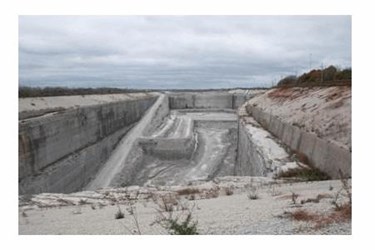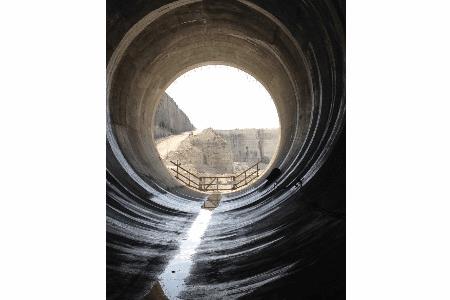President Obama Signs Water Infrastructure Improvements For The Nation (WIIN) Act To Support MWRD's McCook Reservoir

President Barack Obama has signed the Water Infrastructure Improvements For The Nation (WIIN) Act of 2016 directing the U.S. Army Corps of Engineers to expedite the completion of the Metropolitan Water Reclamation District of Greater Chicago's (MWRD's) McCook Reservoir Stage 2, the final component of the Tunnel and Reservoir Plan (TARP).
Sen. Dick Durbin and Rep. Mike Quigley fought to include this key provision which prioritizes the funding and completion of McCook Reservoir in the final bill which moved through the House and the Senate as one of the last key measures of the session.
"For too many communities in Illinois, urban flooding has become a reoccurring and costly problem. That's why Congressman Quigley and I worked to ensure that the construction of the McCook Reservoir stays on track. Once completed, the Reservoir will help stop flooding and protect thousands of structures and millions of people," Sen. Durbin said. "I am pleased that we were able to pass this important legislation, and I will continue to work on behalf of communities throughout our state that rely on the Army Corps of Engineers to protect them from flooding and other storm damage."
"The McCook Reservoir is critical in our efforts to protect Chicagoans and their property from destructive and costly urban flooding," said Rep. Quigley. "I applaud President Obama for signing this legislation into law, requiring the U.S. Army Corps of Engineers to expedite completion of this critical project that is already among the nation's most economically beneficial to local residents."
McCook Reservoir Stage 1 will be completed in 2017 and provide 3.5 billion gallons of storage. Stage 2 will be completed in 2029 and provide 6.5 billion gallons of storage. The reservoir will prevent overflows that cause flooding and water pollution, as well as prevent untreated sewage from entering Lake Michigan. The reservoir is also expected to provide more than $114 million per year in flood damage reduction benefits to 5 million people in Chicago and 36 suburbs. The McCook Reservoir is located in Bedford Park, east of the Stevenson Expressway (I-55), between the Des Plaines River and Chicago Sanitary and Ship Canal.
 The McCook Reservoir marks the final piece to the acclaimed engineering feat known as TARP. The 109-mile tunnel portion of the project, known as the "Deep Tunnel," was completed in 2006, followed by the completion of construction on the Majewski Reservoir in the northwest suburbs in 1998 and the Thornton Composite Reservoir in the south suburbs in 2015.
The McCook Reservoir marks the final piece to the acclaimed engineering feat known as TARP. The 109-mile tunnel portion of the project, known as the "Deep Tunnel," was completed in 2006, followed by the completion of construction on the Majewski Reservoir in the northwest suburbs in 1998 and the Thornton Composite Reservoir in the south suburbs in 2015.
"The Chicago area received a major boost in preventing area flooding and eliminating pollution from local waterways thanks to the critical efforts of Senator Durbin, Congressman Quigley, and our entire Illinois delegation," said MWRD President Mariyana Spyropoulos. "We look forward to completing this project and appreciate the support that will provide crucial protection of our water environment."
In addition to the McCook Reservoir provision, Sen. Durbin, Rep. Quigley and Rep. Dan Lipinski included other key provisions in the legislation to allow for the transfer of credit from the MWRD's advance work at Thornton Reservoir to other key MWRD projects that could help lower costs. Other benefiting projects include the Brandon Road Study, which shields the region from aquatic nuisance species under Great Lakes and Mississippi River Interbasin Study (GLMRIS). Another provision authorizes the construction of the Upper Des Plaines River Project to address flooding in 43 municipalities, ecosystem restoration, water quality and recreation features.
About The Metropolitan Water Reclamation District of Greater Chicago
Established in 1889, the MWRD is an award-winning, special purpose government agency responsible for wastewater treatment and stormwater management in Cook County, Illinois. For more information, visit www.mwrd.org.
Source: The Metropolitan Water Reclamation District of Greater Chicago
